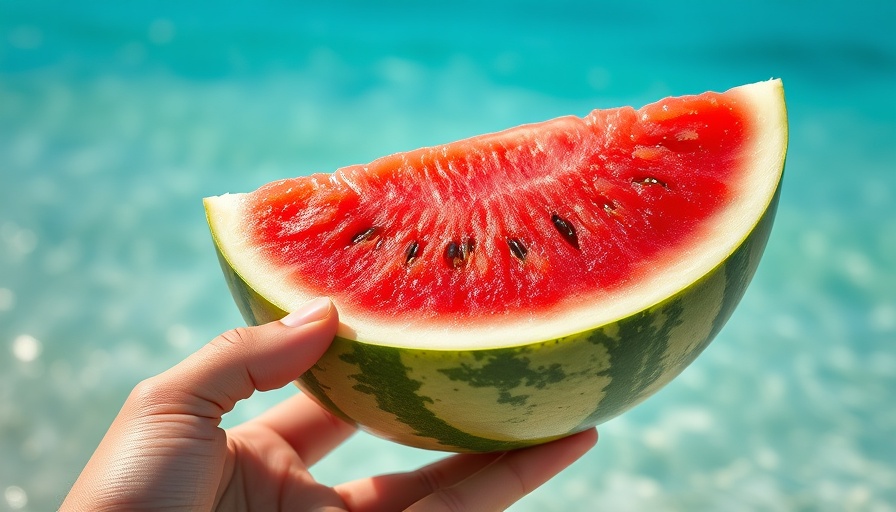
Craving Watermelon: The Joie de Vivre and Health Benefits
Watermelon is one of summer's most gratifying treats—a deliciously hydrating fruit packed with nutrients and a refreshing taste that tantalizes the taste buds. Many people might dive into this summer favorite with thoughts of its health benefits, particularly as social media trends have put a spotlight on the so-called 'watermelon diet.' However, it's essential to sift through the hype and understand the real impact eating watermelon can have on your body.
Watermelon Diet: Fact or Fad?
Social media platforms have recently fostered a watermelon diet craze—where enthusiasts claim that eating only watermelon can detox the body and lead to significant weight loss. Proposed durations for this diet can vary significantly from a mere three-day cleanse to a month-long watermelon binge. Jessica Cassetty, a registered dietitian, emphasizes that while watermelon is a nutritious food, it lacks the necessary nutrients to sustain the body long-term. Its high water content (about 90%) makes it an excellent choice for hydration, but it can't replace a balanced diet that includes proteins and healthy fats.
What Makes Watermelon So Beneficial?
Despite the misleading claims of a 'watermelon cleanse,' watermelon is still a superfood thanks to its impressive nutritional profile. The USDA lists several key nutrients found in watermelon, including:
- Vitamin A: Vital for vision and immune functionality.
- Vitamin C: An antioxidant contributing to overall immune health.
- Lycopene: A compound linked to reducing risks of heart disease and certain cancers.
- Low-Calorie Snack: Perfect for those looking to maintain a calorie deficit.
Research published in the Journal of Clinical Medicine supports the claim that these vitamins may help boost the immune system. Meanwhile, a study in Nutrients concluded that daily consumption of watermelon can lead to a decrease in body weight and body mass index (BMI), given its low sodium and fat content.
Weight Loss and Hydration: The Double Benefit
Watermelon can indeed support weight loss efforts, primarily through its hydration and low-calorie properties. Yet, as Keri Gans, another registered dietitian points out, relying solely on watermelon for weight loss can lead one to lose water weight temporarily—but a balanced diet is essential for lasting health results. “Life doesn’t exist solely on watermelon; our bodies need a variety of nutrients to thrive,” she adds. Eating watermelon regularly as part of a balanced diet could help in managing cravings while keeping calorie intake in check.
The Balance of a Healthy Diet
The consensus among nutrition experts holds that while watermelon can be a valuable addition to your diet, it cannot substitute the diversity required for proper nutrition. “Eliminating vital macronutrients like protein and healthy fats will deprive the body of essential building blocks,” Cassetty warns. To achieve optimal health, consider including watermelon as a snack or a side dish rather than a stand-alone meal. This will not only enhance your hydration levels but also provide vital vitamins without compromising overall health.
Taking Action: Embrace Healthful Choices Today
Watermelon is not just a flavorful fruit but also a vehicle for better health. By incorporating watermelon into a diverse and balanced diet, you can reap its nutritional benefits while avoiding the pitfalls of restrictive diets. Make watermelon a staple in your summer meals, but remember to complement it with other food groups for holistic wellness.
For more insights on healthy eating strategies, consider subscribing to health newsletters or engaging with nutritionists for personalized guidance. Embrace the joy of nourishing your body while enjoying delicious foods like watermelon!
 Add Row
Add Row  Add Element
Add Element 



Write A Comment